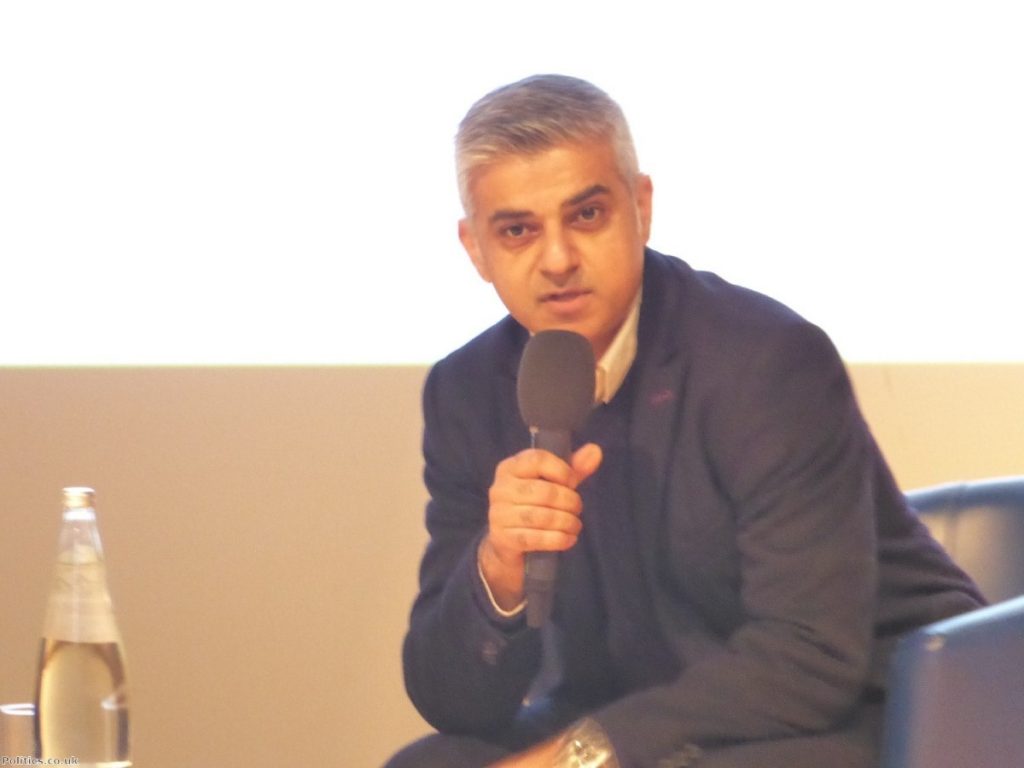Factcheck: Did TfL reveal a black hole in Sadiq Khan’s fares plans?
Sadiq Khan has got himself into real difficulty in the past week over his transport fares policy.
The story began last month when Labour's mayoral candidate announced plans to freeze Tube fares in cash terms for four years and claimed it would cost just £450 million.
This seemed like a potentially popular policy. However the trouble began when the BBC reported estimates by Transport for London that this would actually cost £1.9 billion, roughly four times as much as Khan had claimed.
However, rather than simply disagree with TfL's analysis, Khan chose to suggest that TfL had not even made this claim in the first place.


Asked about this on BBC London yesterday, a visibly angry Khan said repeatedly that the claim was "nonsense" adding that: "TfL haven't said there is a £1.9 billion black hole [in my fares plan]."
He went on to accuse BBC reporter Tom Edwards and other journalists of misleading Londoners over what TfL had said, adding that "I am correcting you…"
This is not the first time Khan had made this claim about TfL's figures. Last week in a debate with Zac Goldsmith, Khan claimed that the £1.9 billion figure was "not [TfL's] figure," adding that: "they don't say that."
So did TfL actually make that claim, or is Khan telling the truth? Well today I contacted TfL to clarify whether they had indeed made the calculation of £1.9 billion as reported by the BBC.
Here's what they told me:
"A four year fares freeze on Tube, rail would reduce our income by £1.9bn over the course of our Business Plan to 2020/21."
So there it is in black and white. Contrary to what Khan continues to claim, TfL do say his plans would cost £1.9 billion. TfL also sent me a detailed breakdown of their calculations, further confirming they believe his freeze would cost almost £2 billion by 2020.
TfL's projections are based on their business plan which assumes that fares will rise with inflation plus one per cent over the next four years. It also takes into account rising numbers of people using the Tube and the opening of Crossrail.
Khan is free to disagree with those calculations and indeed sources close to Khan point out that Boris himself has not raised fares by RPI plus one per cent over recent years either.
But even without that extra one per cent, TfL still suggest that Khan's fares would cost them at least £1.3 billion in revenue over four years. In fact the only way that Khan's estimate of a £450 million cost would fit TfL's figures would be if he was merely promising to freeze fares in line with inflation. But Khan's campaign continues to claim that he will freeze fares in cash terms – a much more expensive pledge.
Sources close to Khan say they are "frustrated" with the continuing row over Khan's fares policy. They say they want to push the debate back on to how much TfL (and by implication Goldsmith's) plans to raise fares above inflation would cost Londoners.
This is sensible. But by continuing to deny the undeniable, Khan has managed to turn a debate about rising transport costs into a debate about honesty. He would be wise to change tack fairly quickly.









